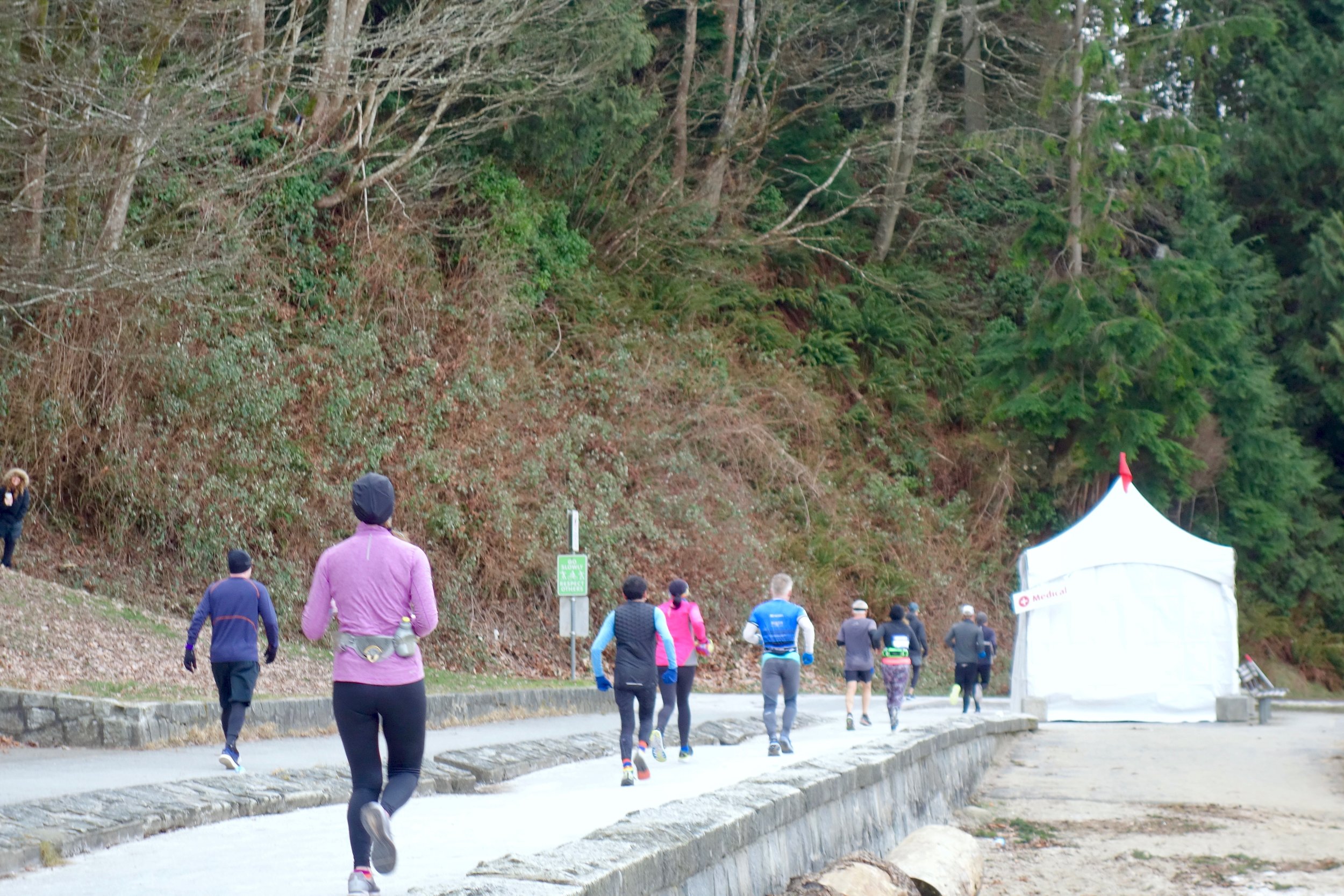Vancouver First Half Marathon - Learning to be a long distance runner.
On Sunday February 10th, 2424 participants – 1194 women and 1230 men took part at the Vancouver First Half marathon, this year and for the first time organized by the Non for Profit Run Van Society.
It was a sold out race and I was lucky to be one of the racer.
The whole adventure started in October 2018 when I decided to join the Forerunners running clinic as part of the Ironman training. I signed up and one option was to get a spot for the First Half, which I did. Running is where you lose or gain in an Ironman and with two quite painful experiences in the past, I wanted to drill down to how to train properly for long distance.
Start early on as it’s a long process.
The training is made of a mix of long distances runs, tempo runs, speed work. I typically do the long run on Saturday morning with the Forerunners group, tempo runs on Monday and speed work on Wednesday evenings. The first step was to establish the right group. Basically, you assess your time for a 10K or 1/2 marathon, there’s leaders for each level, you pick one and after few practice you know that your group runs at the right pace for you. I find that it’s always good to feel challenged so better be in a faster group especially at the beginning of a cycle.
The making of an endurance athlete takes time, so be prepared if you want to move towards these achievement to dedicate enough time to built up your body to the specifics of running.
Longs runs are key.
Every Saturday morning, we do a long run at 8:00am. I’m naturally not a morning person, but the fact to meet your running pals, the whole routine of being ready to run at 8:00am and mentally to go for a long run is the best physical and mental preparation for races to come. You built up step by step habits and good memories so when the day race arrive, these memories come back and put you in a positive situation.
Do strength conditioning early in the season.
Core is key to run correctly and avoid injuries. As I mentioned in a previous post, I spent the first 4 months of my season to do work on my core. It’s a mix a TRX sessions, circuit training based on calisthenics at Yyoga and workouts with weights at Clem Fitness.
Stretch your body and mind.
This one is easy, just read the post about incorporating yoga sessions in your training.
Work on your mental fitness.
Mental fitness is a tricky one. It’s a mix of being able to take pain and transform it into a process part of the performance. This year and for the first time I incorporated meditation and Yin yoga. These practices bring our inner challenges and allow us to deal with them. And I can tell you, the evening before the races, during the races, your inner little “bad voice” is going to speak or not depending on how you deal with it. Interestingly enough, one of the little talk at my hatha class the night before the 1/2 marathon was about how we deal with temporary annoyances like cold weather. Well it was a bit chilly Sunday morning, the water at the aid the station was cold… all good, your mind process it because you had a chance to integer it before.
Last but not least, learn the running langage.
Pace time, negative split, half time… Running has its way to establish datas to build a strategy for the race. Part of the training is to build this knowledge and understand how you can apply to your journey.








